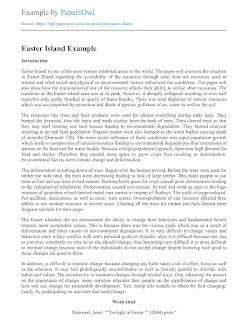The Easter Essay: Exploring the Rich Traditions and Deep Meaning
Introduction
Easter, the annual springtime celebration, holds a significant place in Christian tradition and culture. Beyond the vibrant colors and festive atmosphere, Easter symbolizes rebirth, hope, and salvation. This essay will delve into the history, customs, and significance of Easter, shedding light on the deep-rooted traditions that make it such a cherished holiday.
The Origins of Easter
Originating from the Greek word "Pascha," Easter finds its roots in the Jewish festival of Passover. In early Christianity, Easter commemorated the resurrection of Jesus Christ, which falls on the third day after his crucifixion, as described in the New Testament of the Holy Bible.
As time passed, Easter began to merge with various pagan spring festivals, incorporating elements of fertility, new life, and the arrival of warmer seasons. This blending of traditions gave Easter its distinct character, combining both religious and secular customs.
Easter Customs and Traditions
Easter is celebrated worldwide with diverse customs and practices. One of the most iconic symbols of Easter is the decorated Easter egg, representing rebirth and new beginnings. The tradition of painting eggs in vibrant colors predates Christianity and was later incorporated into the Easter festivities.
Another cherished custom is the Easter Bunny, a playful and iconic figure associated with Easter. The bunny's role is to deliver baskets filled with chocolate eggs, candies, and small gifts to children. This tradition stems from ancient folklore, symbolizing the arrival of spring and fertility.
In addition to these customs, a significant part of Easter celebrations involves attending church services, which often include special prayers, hymns, and reenactments of Jesus' crucifixion and resurrection.
The Symbolism of Easter
Easter carries a profound symbolism in Christianity, representing hope, forgiveness, and the promise of eternal life. The resurrection of Jesus Christ forms the cornerstone of Christian belief, reminding the faithful of the triumph of light over darkness and marking the ultimate redemption of humanity.
Furthermore, Easter serves as a reminder of the cyclical nature of life. Just as winter gives way to spring, Easter celebrates the triumph of life over death, acting as a beacon of hope for believers.
Easter Celebrations Around the World
Easter is celebrated with enthusiasm and fervor worldwide, although customs and practices may vary across different cultures. In many countries, such as the United States and the United Kingdom, Easter Sunday is a public holiday and is marked with family gatherings, elaborate meals, and the exchange of chocolate eggs.
In Spain, vibrant processions called "Semana Santa" are held, with participants wearing elaborate robes and carrying religious statues through the streets. These processions attract visitors from all over the world who come to witness this stunning display of devotion and tradition.
In Greece, the Orthodox Easter is celebrated with the "Anastasi" midnight church service, followed by a joyful feast where families and friends gather to break their fast and enjoy traditional foods.
Conclusion
Easter, with its rich history and deep symbolism, has become a cherished holiday observed by millions around the world. Beyond the festivities and customs, Easter represents a time for reflection, renewal, and gratitude. It is a reminder of the power of faith, the triumph of light over darkness, and the hope for a brighter tomorrow.
May this Easter season bring joy, peace, and blessings to all, as we celebrate the core principles that make this holiday so special.

No comments:
Post a Comment